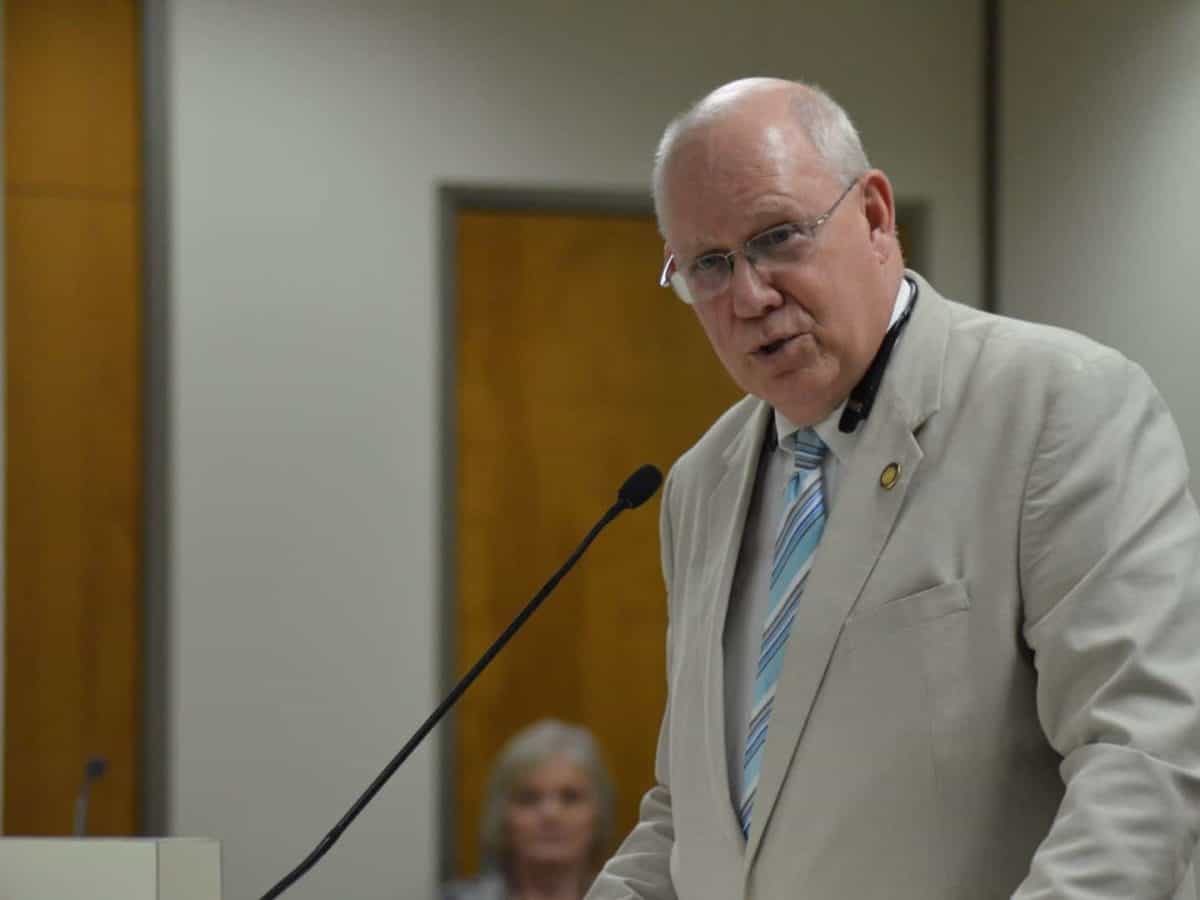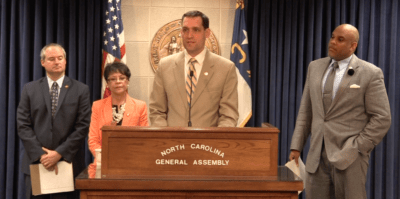
Update: 2:44 p.m. House Bill 514 passed the Senate rules committee later in the afternoon
A bill that would allow four towns served by the Charlotte-Mecklenburg school system (CMS) to create their own charter schools cleared its first hurdle today in the Senate, but not before lawmakers and members of the public had the chance to ask numerous questions and express reservations.
House Bill 514 passed the Senate education committee on a voice vote, and goes next to the rules committee, followed by the committee on pensions and retirement. If the discussion in the education committee is any indication, it’s likely to receive more pushback.
“We do not typically get involved with local bills unless they’re precedent setting,” said Leanne Winner, director of government relations for the North Carolina School Boards Association. “Once this genie is out of the bottle you will not be able to get it back in.”
She spoke during a short public comment period and went on to list numerous issues with the bill, including the fact that it could violate a constitutional provision that says money spent by governments must be spent on citizens in their community. While the towns’ students would receive preference to attend the school, Winner argued that it might violate the constitution if more than 50 percent of the students didn’t come from the town.
House Bill 514 would have originally allowed the towns of Matthews and Mint Hill to form charter schools run by the local government. They would be subject to all the other restrictions and oversight as regular charter schools. The bill passed the House last year and was heard in the Senate for the first time this afternoon in the Senate education committee. It was amended to include two more Charlotte-Mecklenburg towns (Huntersville and Cornelius), allow teachers at such schools to participate in retirement and health plans the same as any other charter school teacher, and remove all of its funding elements. Rep. Bill Brawley, R-Mecklenburg, main sponsor of the bill, said the funding elements were now taken care of by the budget.
The bill faced some obstacles after a report was released last week by former long-time General Assembly staffer Gerry Cohen. Cohen found a number of issues with the bill, including the fact that towns can’t use property taxes to build a school without a referendum and aren’t allowed to take on debt for school-related purposes without holding the taxpayers liable. However, when the budget dropped Tuesday night, it included a provision that allows municipalities to use property taxes for school-related purposes, and it absolves taxpayers from being liable for any debt taken on.
Sen. Rick Horner, R-Nash, challenged Brawley, saying this bill goes against 25 years of charter law which says, with some exceptions, no preferences should be given to who can attend a charter school.
“This clearly is a departure, is it not, from current charter school law?” Horner said.
Brawley went on to explain the impetus for the bill and why the towns wanted it.
“This has been expressed as a way for towns to completely leave CMS by creating charter schools for their entire population,” he said, adding that there are schools in Mint Hill that do not have a single student from the town. He also said that a charter school may not be the best way for these towns to address their issues and that breaking up the district could be a better choice.
Sen. Gladys Robinson, D-Guilford, went on to ask further why this bill needs to allow the towns to have a preference in attendance.
“Literally, they’re paying for the school… shouldn’t they have first dibs?” Brawley responded.
Both Robinson and Sen. Erica Smith, D-Northampton, expressed concern that this bill could pave the way for resegregation in these towns. Smith said that the communities in the bill are mostly affluent and that she has concerns over the fact that they have less diversity and more access to resources than other county schools.
“It’s going to be separate…and it’s going to be very much unequal,” she said.
Brawley disagreed, saying that most of the students in the town would still attend CMS.
“I think a mythical bill that does the things that Senator Smith and Senator Robinson are describing would be a problem,” he said. “And it’s not something I would support.”
Charles Jeter, government relations coordinator for CMS Schools, spoke in a public comment, challenging the notion that all the towns actually wanted this bill — something Brawley repeatedly said. Jeter said that many people spoke at local town meetings against it and he argued that the votes from the towns supporting it were not without dissent. He argued that this sets a precedent that could see other towns seeking to do the same thing. He also said that this bill would allow these towns to have an unfair advantage over charter schools in the area, who won’t be able to compete against the taxing powers of a local government.
While there was pushback, there was considerable agreement as well and the bill did ultimately pass the committee.
Sen. Bill Cook, R-Beaufort, complained that the debate was taking too long and that many of the questions being asked weren’t relevant.
“I think this is a good bill and I think we’re spending way too much time on it,” he said. “What we’re doing is adding four schools. How hard is this?”
Sen. Jerry Tillman, R-Randolph, said he didn’t think it was a great idea for towns to run charter schools, but if they wanted to, they should be able to.
“If these four…want to screw themselves, I’m going to vote for them to do that,” he said.
Recommended reading



